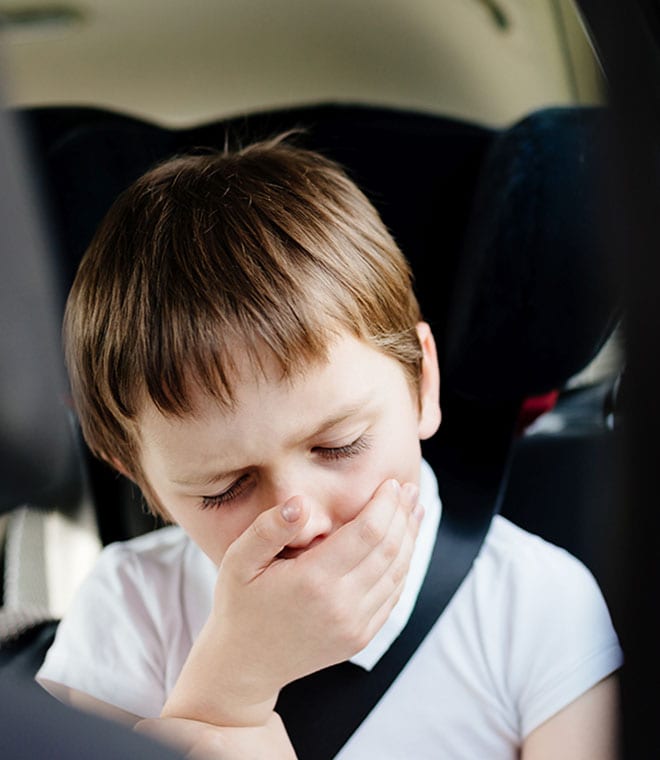Health
What causes motion sickness?
By Maxwell Nanes, DO Aug 23, 2024 • 4 min
If you've ever heard someone say they have car sickness or sea sickness, they’re most likely describing symptoms of motion sickness. While many people have experienced this common ailment, many don’t understand exactly what causes this issue.
Why do people get motion sickness?
Motion sickness occurs because of a miscommunication between the brain and body's sensing systems. Let's take car sickness, for example. While you're seated in a car, your eyes can see the movement happening outside the window as trees, cars and other objects pass through your vision. This tells the brain there's a lot of movement happening. At the same time, however, you're sitting still in the car.
The brain uses a balance sensor called the vestibular system, which is located in the inner ear, to know when your head or body is moving. When you're sitting still in a car, you might experience motion sickness because the brain confuses the movement it can see through the eyes with the fact that the inner ear is sensing that you're sitting relatively still. This mismatch of signals is thought to produce the symptoms of motion sickness. Symptoms of motion sickness are involuntary.
When do people get motion sickness?
Motion sickness occurs commonly while traveling. Whether you're traveling by car, plane or boat, you may experience motion sickness. Motion sickness is sometimes referred to by a specific name, based on the type of travel responsible for symptoms, such as:
- Sea sickness (caused by boat travel)
- Car sickness (caused by car travel)
- Air sickness (caused by airplane travel)
Although motion sickness is frequently associated with travel, people can experience symptoms while watching TV, on amusement park rides or even while playing video games (especially with virtual-reality experiences).
Risk factors for developing motion sickness
Motion sickness is more likely to occur during childhood between the ages of 2 and 12, and it typically improves during the teenage years. There is a 50% chance that a child of a parent who has motion sickness will have the condition too.
Women are more likely than men to experience motion sickness. There is an association between hormone changes and motion sickness, which may cause nausea during pregnancy and menstruation or while undergoing hormonal treatments.
Those who experience migraine headaches or have problems with vertigo and other inner ear conditions may be more likely to have motion sickness.
Motion sickness is less common in adults over age 50.
While motion sickness can be unpleasant, it usually goes away once the trip is over. However, if you find that motion sickness is getting in the way of your day-to-day life, contact your healthcare provider for an evaluation and treatment options. There are a number of options available, including over the counter motion sickness remedies and prescription motion sickness medications.
Updated by Julie McDaniel, MSN, RN, CRNI, August 2024.
Sources:
- https://www.uptodate.com/contents/motion-sickness
- https://www.seattlechildrens.org/conditions/a-z/motion-sickness/
- https://wwwnc.cdc.gov/travel/yellowbook/2020/travel-by-air-land-sea/motion-sickness
- https://www.merckmanuals.com/professional/injuries-poisoning/motion-sickness/motion-sickness?query=motion%20sickness#Etiology_v1115145



